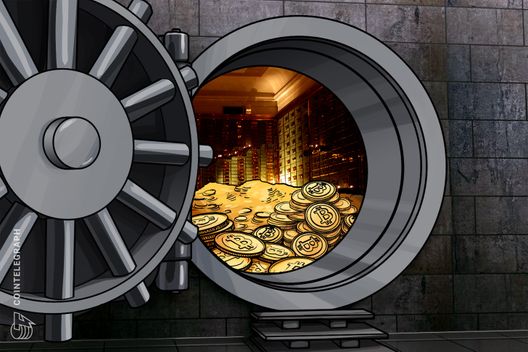YouTube’s sleazy decline into scam promotion
Last weekend, I was watching a sports stream on YouTube. Talented, fearless athletes on the screen, a glass of wine in one hand and a purring cat under the other — you know, those perfect Saturday evenings. If only the stream didn’t keep being interrupted every few minutes by annoying ads. They usually come in a series of two advertisements played in a row, which can be skipped after five seconds.
Just as I was thinking about subscribing to a paid version to free myself from learning more about flying detergents, half-eaten donuts, striped snickers and the best tampons ever, I saw the following:
“To verify your address, just send from 0.5 to 200 ETH to the address below and get from 1 to 400 ETH (x2 back).”
This tired old proposition, which would offend anyone even slightly acquainted with the world of crypto technology (my grandmother included), was accompanied by a video interview with Binance’s Changpeng Zhao taken from what looks to be some Forbes event. The shot was unceremoniously adorned with Ethereum and Binance logos.

A conveniently ambiguous policy
If I want to publish a video of my little nephew dancing to a pop song, it risks being swiftly blocked for violating intellectual property rights. Is that fair? Possibly.
When an educational stream about cryptocurrencies is organized by Cointelegraph or a crypto vlogger, it risks being blocked for “harmful content,” which has happened several times this year so far. Ridiculous.
If people keep falling for fake Elon Musk giveaway scams offering Bitcoin (BTC) from innumerable fake accounts created specifically to deceive, it is not YouTube’s responsibility. OK, I totally agree; everyone needs to conduct their own research when making any investment decision. But no one seems to be responsible for the advertisements YouTube exposes its audience to either. Atrocious.
The fact that the biggest video-hosting platform of our time shamelessly permits itself to promote scams is deeply unjust. This brings to mind the Roman expression of pecunia non olet — that money does not stink, regardless of whether it is generated via human waste or exploitative practices. Stink or not, an unpleasant aftertaste lingers and will not be easily forgotten.
It is truly sad that one of the world’s most prominent tech companies freely puts its 2 billion user base at risk by promoting scoundrels and fraudsters. Despite all YouTube’s prosperity, the platform hasn’t bothered to implement a sufficient scam-checking process for its sales team. It is grossly unprofessional for such an influential organization to lack clear policies on the advertising content deemed eligible for monetization.
As a journalist, I am very sensitive to any media malpractices that promote bad actors, especially in the delicate area of new technology, where the difference between a promising project and a scam could define the sustainability of the industry. The media’s job is to double-check everything it divulges to the world, use reliable sources, and apply scam-checking tools where necessary. Partnerships and sales must reflect the same approach.
As a user, I see no difference between harmful content and obtrusive ads for scams placed in videos. It plays with my trust, puts my material well-being at risk, and when not harmful, it is downright offensive in assuming a lack of common sense in its audience.
YouTube fails its users
Here is what can be found on YouTube’s website: “The safety of our creators, viewers, and partners is our highest priority — and we look to each of you to help us protect this unique and vibrant community. It’s important you understand our Community Guidelines, and the role they play in our shared responsibility to keep YouTube safe. Please take the time to carefully read the policy below.” The policy clarifies:
“YouTube doesn’t allow spam, scams, or other deceptive practices that take advantage of the YouTube community. We also don’t allow content where the main purpose is to trick others into leaving YouTube for another site.”
It seems like one of the most influential centralized services is failing to fulfill its own standards that it recommends for careful examination to its users. While the YouTube community either abides by the rules or is punished for not conforming to them, the company gives itself a free pass when not following its policy. This raises a big question as to its value for the community. Maybe it is time to empower the users and give them the right to enjoy transparent, decentralized video-hosting platforms.
With great influence comes great responsibility. It is a pity that a service used by over 70% of U.S. internet users chooses to ignore that.
I am interested to learn your opinion and ideas on how decentralized technology could help users to receive quality video-hosting services, including advertisements, and how it can stand up to giants like YouTube. Please feel free to contact us via email at editor@cointelegraph.com or DM me on Twitter @KristinaLCorner.
The views, thoughts and opinions expressed here are the author’s alone and do not necessarily reflect or represent the views and opinions of Cointelegraph.









